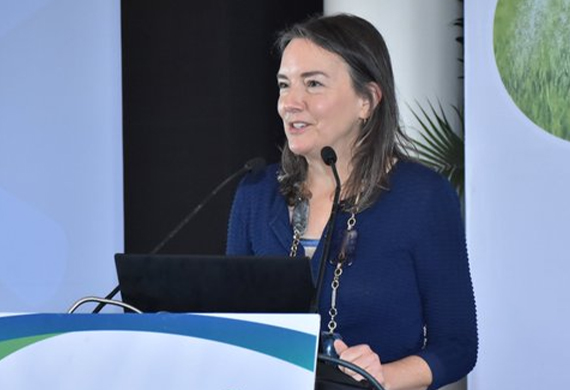
Walmart Foundation & PRADAN implements 'PROWFIT' project To Support Women-Led FPOs
By: WE Staff | Friday, 18 November 2022
Walmart Foundation and PRADAN announced the launch of the "PROWFIT" project with the goal of enhancing the rural livelihoods of small and marginal farming households, particularly women farmers in the tribal areas of eastern states of the nation. 60 women-led Farmer Producer Organizations (FPOs) will receive help from PROWFIT, which stands for the "prowess of organised resources & women-farmers for transforming FPOs into independent institutions," over the course of 30 months.
The project, which will be funded by a $2 million grant from the Walmart Foundation, aims to enable up to 120,000 women to launch successful smallholder enterprises that will collectively generate $32 million in annual revenue.
The FPOs will get help from the initiative to create the business plans, systems, and processes they'll need, as well as put governance structures in place for their companies. They will also receive technology and financial assistance through connections to service partners and pertinent federal or state government programmes in order to seek supplementary aid. For instance, 29 FPOs from the project will be able to benefit from access to better technology, credit, better input, and more markets to enhance the quality and value realisation of their produce under the Government of India Scheme "Formation and Promotion of 10,000 FPOs."
Building on PRADAN's prior endeavour, "LEAP," PROWFIT (Livelihoods Enhancement through market Access and Women Empowerment).
The Walmart Foundation provided a $1.9 million grant to LEAP, a two-year effort. In Jharkhand, Odisha, and West Bengal, this programme affected the livelihoods of 45,000 smallholder women farmers. The initiative concentrated on giving women smallholder farmers (SHFs) the chance to develop the skills necessary to sustainably double their income over the course of four years, with the aim of lifting them permanently above the poverty line by establishing sustainable farm businesses. In order to engage in agricultural and related activities through coordinated production and market interface, these women farmers had already been organised into Self-Help Groups (SHGs) and collectively collected into informal production clusters. Since then, these unofficial producer collectives have developed into 13 formalised FPOs, and efforts are being made to strengthen these institutions.
While elaborating on the new grant, Julie Gehrki, Vice President and Chief Operating Officer at Walmart Foundation, said, “PRADAN’s projects like PROWFIT and LEAP align well with our efforts in India to strengthen FPOs by helping them increase volume, quality and sustainability of production, while building and deepening their connections to markets. The latest investment in PRADAN will expand reach to even more rural women, while also deepening impact through sustainable yield growth and through unlocking income sources.”
In order to raise brinjals during the monsoon season, Muni Heprika, an Odia lady from the Kandha tribe, joined Maa Gangeidevi Producer Group (PG), a division of the Mahila Pragati Farmer Producers Company Limited, promoted under the LEAP project.
“I had a sense that I was going to succeed with PRADAN’s help. They had already started arranging various trainings on nursery raising, crop care, how to protect crops from pest-attacks (IPM or Integrated Pest Management) and organic medicine preparation conducted under the LEAP project. Without the support from the FPO, it would never have been possible for me to take the plunge into brinjal cultivation and enhance my income”, shares Muni.
Avijit Choudhury, Integrator at PRADAN said, “Our work through the LEAP and PROWFIT projects is very significant, not only for creating the identity of marginalised, rural women as ‘women farmers’ but also helping establish them as business leaders and entrepreneurs, with the support extended to more than 60 women-led FPOs.”
Similar to LEAP, PROWFIT aims to change people's lives and means of subsistence while also producing uplifting tales of empowerment and progress. However, efforts must be made to ensure that these Farmer Producer Organizations (FPOs) become self-sustaining business entities, able to interact and negotiate with various market actors, community institutions, and the local administration on their own, in order to maintain and grow the momentum created through social mobilisation and the formation of economic groups like FPOs.
Most Viewed
- 1 Women's Health Startup HerMD Closing Doors Amid Industry Challenges
- 2 5 Famous Women in Indian Armed Forces
- 3 Saudi Women No longer Require Male Permission for Clothing Choices, says Prince MbS
- 4 Kolkata Medtech Startup Innovodigm Raises Rs 5.5 Crore Seed Funding Led by IAN Group
- 5 Yamunanagar's Kashish Kalra Honoured after Securing 111th Rank in UPSC Civil Services Exam
- 6 Madurai Appoints Its First Woman Corporation Head
- 7 IAS Vijayalakshmi Bidari Appointed as the new Nagpur Divisional Commissioner
- 8 American Entrepreneur Lucy Guo Overtakes T Swift to become Youngest Female Billionaire
- 9 ICC Women's World Cup 2025 Trophy Showcased at Indore's Holkar Stadium
- 10 Aparna Saxena's Beauty Venture AntiNorm Launches in India
- 11 Vidya Nataraj Co-Founded BlueStone Jewellery & Lifestyle files IPO
- 12 5 Women Freedom Fighters of India
- 13 Dr. G Krishnapriya appointed as CEO for Trichy
- 14 M3M & Sirona Partner to Introduce Menstrual Hygiene Vending Machines in 15 Locations
- 15 Punjab Govt launches SHE Cohort 3.0 Supporting Tech-led Women Startups
- 16 Indian origin Lawyer, Sweena Pannu appointed as the US New Superior Court Judge
- 17 The Aurora Tech Award recognizes 4 Indian Women-led Startups
- 18 Kerala's Republic Day parade featured an all-female tableau
- 19 Manisha Kabbur Becomes Karnataka's First Woman International Karate Coach
- 20 Director K. S. Ravikumar's Daughter Maalica Ravikumar Launches Life Coaching Company 'Evergrowth Academy' for Women
- 21 Leezu's Raises Pre-Seed Funding to Accelerate Growth in Sexual Wellness Industry
- 22 Sattu: Super-easy summer drink for PCOS gut healing
- 23 Swathi Nelabhatla creates Sitha App, India's First Women-Exclusive Gig Platform
- 24 7 Timeless Female Kathak Dancers & their Iconic Legacies
- 25 Meet 7 Iconic Women Architects of Modern India & their Most Impactful Work
- 26 This Woman-led Insuretech Startup is Helping Bridge the Education Financing Gap in India
- 27 Women Leaders Share Lessons Learnt from India Women's WC Win
- 28 5 Enterprising Women Founders Powering Singapore's Tech & Innovation Landscape
- 29 4 Women. 4 Stories. One Vision for Smarter, Stronger Healthcare
- 30 Global Gender Gap Narrows to 68.8%, But Full Equality 123 Years Away: WEF Report 2025
- 31 Changemakers: 7 Women Entrepreneurs Taking the Make in India Movement Forward
- 32 Meet Lucy Guo, The Youngest Self-Made Female Billionaire Disrupting Tech
- 33 How Women are Driving India's Festive Online Shopping Surge






